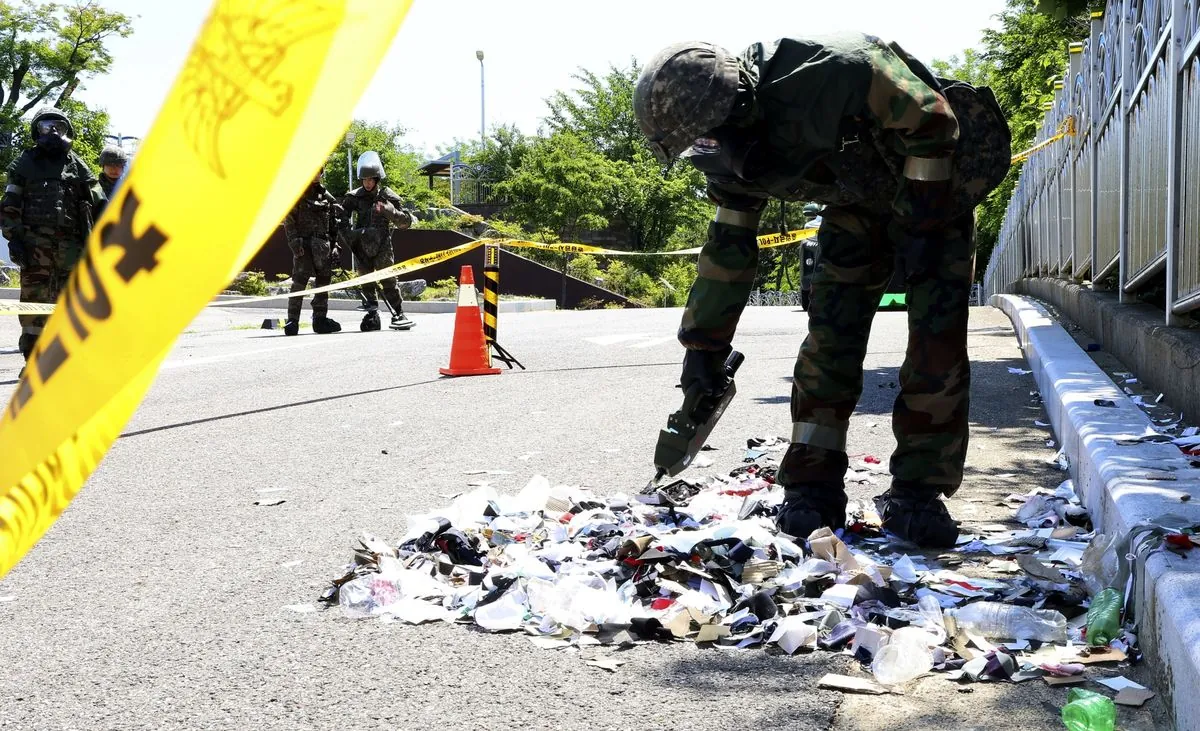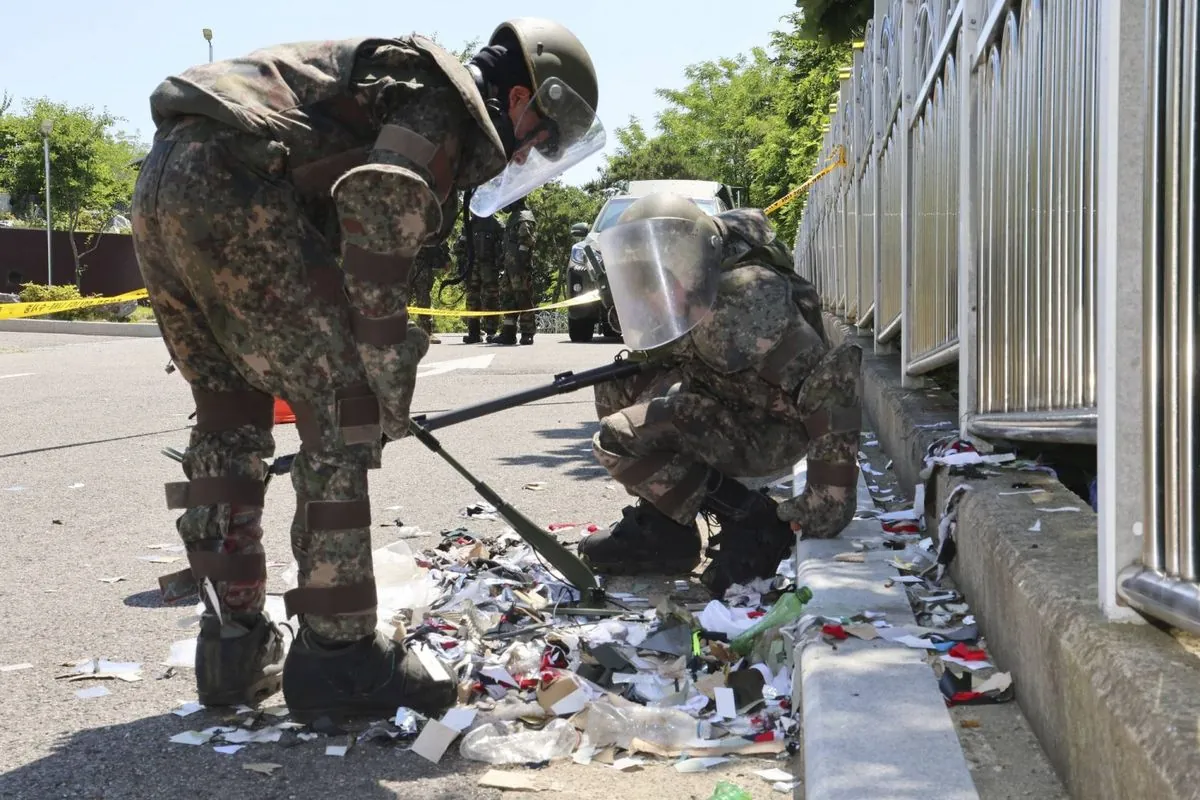North Korea Escalates Tensions with Trash-Filled Balloon Campaign
North Korea launches trash-laden balloons towards South Korea in retaliation for propaganda leaflets. South Korea responds with loudspeaker broadcasts, intensifying psychological warfare between the two nations.

The Korean Peninsula is witnessing an unusual escalation of tensions as North Korea continues its unconventional psychological warfare campaign against South Korea. The South Korean military has reported that North Korea is once again launching balloons filled with trash towards the South, potentially reaching areas north of Seoul.
This peculiar tactic is part of a broader psychological warfare strategy employed by both nations, rooted in their complex history. The Korean Demilitarized Zone (DMZ), established in 1953, serves as a 250-kilometer-long, 4-kilometer-wide buffer between the two countries. Despite its name, the DMZ is one of the most heavily militarized borders globally, reflecting the ongoing state of tension since the Korean War ended in an armistice rather than a peace treaty.
According to South Korea's Joint Chiefs of Staff, the prevailing winds could carry these balloons to regions north of Seoul, the South Korean capital situated merely 50 kilometers from the DMZ. This proximity underscores the potential impact of such psychological tactics on civilian populations.

In recent weeks, North Korea has reportedly launched over 2,000 balloons carrying an assortment of waste materials, including paper scraps, cloth remnants, and cigarette butts. The Democratic People's Republic of Korea (DPRK), North Korea's official name, claims this action is retaliatory, responding to South Korean activists who have been sending anti-Pyongyang leaflets across the border.
The use of propaganda leaflets has been a long-standing practice since the Korean War (1950-1953), with both sides employing this method to disseminate information and influence public opinion. However, North Korea's strict control over media and information entering the country makes these leaflets particularly contentious.
In response to the North's balloon campaign, South Korea, officially known as the Republic of Korea (ROK), has activated loudspeakers along the front lines. These speakers broadcast propaganda messages and K-pop songs, leveraging the global popularity of Korean pop music that has surged since the late 1990s.
This exchange of psychological warfare tactics occurs against a backdrop of fluctuating inter-Korean relations. The period from 1998 to 2008 saw the implementation of the "Sunshine Policy," an engagement approach by South Korea towards North Korea. However, relations have since oscillated between periods of heightened tension and attempts at reconciliation.
The DMZ, ironically, has become a haven for diverse wildlife due to limited human activity, contrasting sharply with its role as a symbol of division. As balloon launches and loudspeaker broadcasts continue, they serve as reminders of the ongoing challenges in achieving lasting peace on the Korean Peninsula.
"The winds could carry the balloons to regions north of the South Korean capital, Seoul."
This latest development in the ongoing psychological warfare between the two nations highlights the complex dynamics at play in the region, where even trash can become a tool in the broader geopolitical struggle.


































